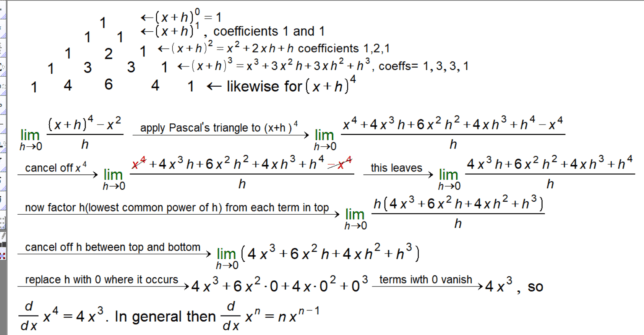
1. x⁵: Here all five factors are x, so the exponents add up to 5.
2. 5x⁴h: Here four factors are x and one factor is h, so the exponents add up to 4 + 1 = 5.
3. 10x³h²: Here three factors are x and two factors are h, so the exponents add up to 3 + 2 = 5.
4. 10x²h³: Here two factors are x and three factors are h, so the exponents add up to 2 + 3 = 5.
5. 5xh⁴: Here one factor is x and four factors are h, so the exponents add up to 1 + 4 = 5.
6. h⁵: Here all five factors are h, so the exponents add up to 5.
2. 5x⁴h: Here four factors are x and one factor is h, so the exponents add up to 4 + 1 = 5.
3. 10x³h²: Here three factors are x and two factors are h, so the exponents add up to 3 + 2 = 5.
4. 10x²h³: Here two factors are x and three factors are h, so the exponents add up to 2 + 3 = 5.
5. 5xh⁴: Here one factor is x and four factors are h, so the exponents add up to 1 + 4 = 5.
6. h⁵: Here all five factors are h, so the exponents add up to 5.

